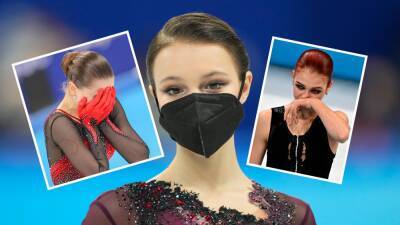Kamila Valieva and Zhu Yi are victims in Winter Olympics’ puppet theatre of pain
Earlier this week the Winter Olympic skating finals dished up one the most heartbreaking things you’ll ever see in sport.
Zhu Yi is a 19-year-old Chinese figure skater. She was born and raised in California, and called Beverley Zu until she switched allegiance to her parents’ homeland four years ago. The day before Zhu had skated in the women’s short programme team event. It was a disaster.
She’d fallen on her first jump, crashed into a wall, and finished 10th in a field of 10. True to a discipline that is always poised on the edge of some horribly poignant collapse, she’d done all of this to the sounds of Mick Jagger singing about flowers, girls dressed in their summer clothes and a cloud of toxic black despair consuming all human hope.
Zhu had been inconsolable afterwards. She was duly scorned and ridiculed overnight on Chinese mainstream and social media (“Zhu Yihas Fallen” was trending on Weibo), with some casting her selection ahead of an “authentic” Chinese skater as an affront. And Zhu looked horribly bruised and fragile at the start of Monday’s free skate, as she paused, took a breath, tiny in all that cold hard space, and immediately fell over again.
Then she fell over again, landing splayed on her knee. At which point, with the day melting around her, she just had to carry on, this slight, tearful human in hopeful red weeds weeping along to her own routine as Sunset Boulevard soared and trilled.
There were levels to this horribly tender theatre of pain. Towards the end something else began to happen. Zhu began to express her sorrow through her movements, horror seeping in to that perky choreography, because for all its craft this is a discipline the athletes feel.
There were melancholic turns and heartbreaking






